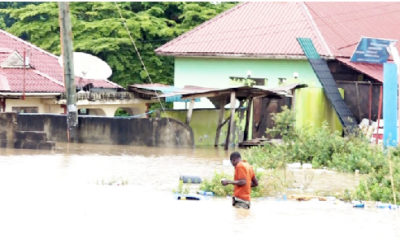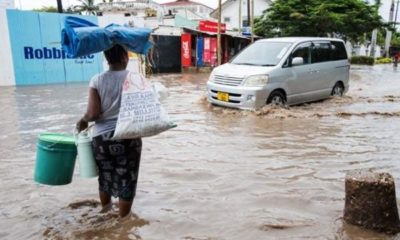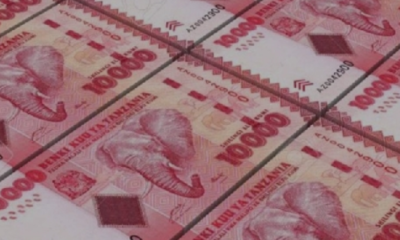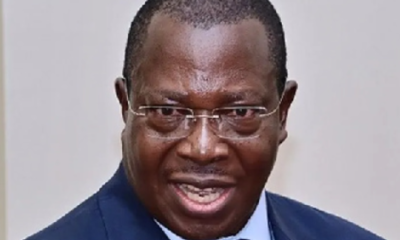News Africa
Samia took Tanzania’s opposition on a roller-coaster ride in 2023

And the open conclusion is that, despite encouraging signs from the powers-that-be from early on in the year, little progress has been made in terms of the kind of democratic reforms that the opposition has been pining for ahead of the next election cycle in 2024.
The initial high note was set by President Samia Suluhu Hassan on January 3, 2023, when she lifted a seven-year ban on public political rallies imposed by her predecessor John Magufuli in 2016, a move that earned her much praise from democratic reform proponents in and outside the country, amid expectations that Tanzania’s civic space was on the way to being fully restored after being ruthlessly shut down in the Magufuli era.
It set the stage for the return of prominent opposition politicians such as Tundu Lissu and Godbless Lema, who had been forced into exile in foreign lands by Magufuli. Subsequently, opposition parties resumed their mass mobilisation in preparation for the October 2024 local government elections and the general election in 2025.
But, as the year progressed, the Samia administration found itself under increasing pressure over a series of touchy public issues that appeared — albeit unintentionally — to arm the opposition with new and potentially harmful ammunition to use against the ruling regime on those public platforms.
In April, the opposition tried to squeeze to its last drop of juice an official audit report on rising levels of corruption within government to drum up public opposition against the ruling CCM party in the face of a rising cost of living.
Even more acutely, Samia faced relentless opposition to Tanzania’s controversial deal allowing the Emirate of Dubai to take over the management of the port of Dar es Salaam, which she brokered. In particular, the main opposition party Chadema was at the forefront of accusations that Samia, being a native of Zanzibar, was trying to sell off one of Mainland Tanzania’s primary assets to foreigners.
The wave of flak got to a point where Samia appeared to start showing signs of regret over her decision to unban political rallies in the first place and consequently give the opposition a free rein to question her government’s policies and direction in public.
She used a September 11 meeting with political parties to openly vent her growing frustrations by castigating opponents for using “inflammatory” language in their public criticisms of both herself and her government and emphasizing strongly that “freedom of speech has its limits.”
“People brought up properly and religiously by their parents should know that there are words they can’t pronounce against other people in public,” she said, in her customary motherly manner but with a streak of forcefulness that Tanzanians are unaccustomed to on her part.
“Someone insults you until you wonder: Is that the same mouth they use to eat their food?”
Those remarks proved to be the trigger for a sequence of events that served to conclusively kill off the opposition’s initial hopes for real change this year.
Samia used the same meeting to formally confirm an indefinite postponement of Tanzania’s much-anticipated constitutional review process until after the 2025 election, ostensibly to allow time for a proposed, government-led “public education and awareness” programme on the contents of the current constitution and what needs to be changed.
A couple of months later, on November 10, the government submitted to parliament a series of bills proposing changes to laws governing elections and political party activities. But opposition parties and other democratic reform stakeholders say the proposed changes fall well short of what they have been expecting.
Both the New Katiba and electoral law amendments have been among key opposition demands to ensure a level playing field going into the coming elections. But, instead of establishing the independent electoral system that the opposition wants, the new bill of elections essentially retains presidential control of the electoral commission.
Another key opposition concern is the failure to introduce provisions in any of the bills for the courts to review results of the presidential vote.
Even though parliament has provided an opening for public views on the bills’ contents before its next sitting in February, the outlook is already decidedly gloomy for the opposition camp, which sees the bills as a done deal, given the way it believes parliament operates.
Chadema said after the New Katiba suspension that it was no longer interested in pursuing a reconciliation agenda with CCM that was initiated by President Samia, citing a decline in sincerity and commitment on the part of the ruling party.
The party’s chairman Freeman Mbowe reiterated this stance during a public dialogue on the bills hosted by the Tanganyika Law Society in Dar es Salaam on December 15, where he asserted that the CCM regime had shown itself to “lack the political will to alter anything substantial in the elections legal framework and is only aiming for cosmetic changes.”
According to Mr Mbowe, CCM has chosen to ignore not just Chadema’s proposals regarding the new constitution, election laws and democratic reforms, but also the recommendations of the President’s own task force on the same issues, which were based on a wider range of stakeholder views.
“Knowing how this parliament works and the bills having already been tabled, it is not feasible to expect it to take on board any new recommendations for changes that we may send in at this stage. The whole thing is a big joke being played on us intentionally and we are just wasting our time here,” he said.
Source: theeastafrican.co.ke
-

 Lifestyle4 weeks ago
Lifestyle4 weeks agoRoad Safety Authority narrates how buttocks causes road accident
-

 GENERAL NEWS1 month ago
GENERAL NEWS1 month agoWhy 15 police officers stormed Owusu Bempah’s church – Kumchacha narrates
-
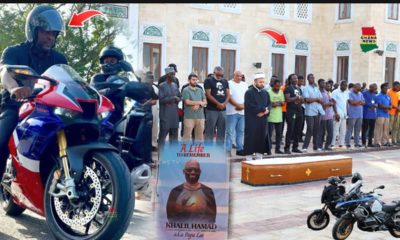
 GENERAL NEWS4 weeks ago
GENERAL NEWS4 weeks agoWatch how Ibrahim Mahama rode Honda superbike to pay last respects to late friend
-
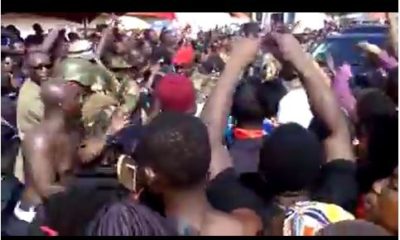
 GENERAL NEWS1 month ago
GENERAL NEWS1 month agoHow Offinso residents storm destooled queen mother’s house, demand for new chief
-

 South Africa News1 month ago
South Africa News1 month agoWoman thrown out of a speeding taxi while on her way to work
-

 GENERAL NEWS2 weeks ago
GENERAL NEWS2 weeks agoDeadly clash between youth and navy personnel results in two deaths at Tema Manhean
-

 SHOWBIZ KONKONSAH2 weeks ago
SHOWBIZ KONKONSAH2 weeks agoJunior Pope’s Death: Video of John Dumelo refusing to join canoe for movie shoot over safety concerns resurfaces
-
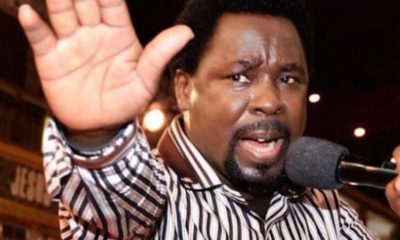
 News Africa2 months ago
News Africa2 months ago‘Satanically dubious’ – SCOAN releases statement on BBC’s report about TB Joshua, church

